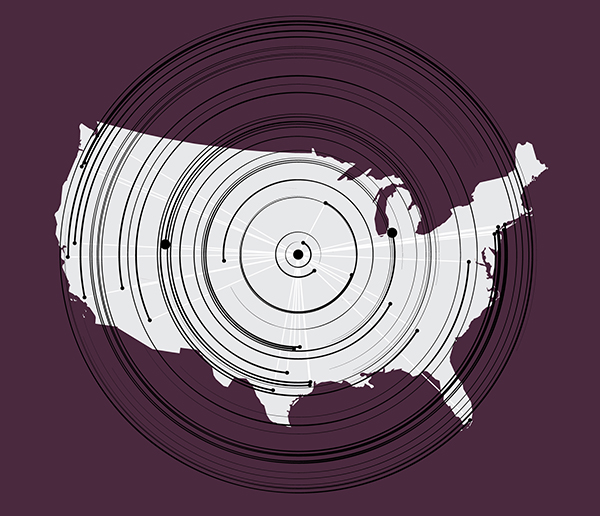In December 2023, Duncan Aviation received the first-ever FAA-issued Repair Station certificate that unites all of our facilities and Satellites under a single Repair Station number, JGVR194F.
The entire company now operates under one repair station manual. The FSDO (Flight Standards District Office) in Lincoln, Nebraska, worked with the Quality team at Duncan Aviation to add the company’s current Satellites and AFLs (Additional Fixed Locations) to the Lincoln Repair Station prior to surrendering the separate Satellite repair station certificates.

The greatest benefit to our customers is that with one group overseeing and supporting all of our locations, the service will be the same at every location.
“Theoretically, the service we provide has always been the same no matter the location, but with each location dealing with different FAA personnel, there was always the possibility of a slightly different interpretation of the rules,” says Enterprise Manager of Quality Mike Mertens. “Now, with only one person, there will be only one interpretation. As a result, we will be even more consistent in providing the same service at every location.”
On October 29, 2023, the Duncan Aviation Satellites and AFLs in Oxford, Connecticut; Bedford, Massachusetts; Teterboro and Morristown, New Jersey; and White Plains, New York; began operating as AFLs under the Duncan Aviation Repair Station in Lincoln.
After transitioning the first five Satellites and resolving the issues, the Quality team worked with the remaining facilities. The Duncan Aviation MRO facilities in Battle Creek, Michigan, and Provo, Utah, along with the rest of Duncan Aviation’s Satellites and AFLs, transitioned to the Lincoln Repair Station certificate on December 10.
To satisfy terms of the transition plan Duncan Aviation had submitted to the FAA, team members at the Satellites and AFLs in the first group were informed well in advance how the transition would affect their daily maintenance activities. Team members at those five Satellites and AFLs also worked with Duncan Aviation’s PDT (Professional Development Team) to complete training on the new systems and procedures.
Now that the transition is complete, instead of consulting the FSDO in dozens of different locations throughout the country, every Duncan Aviation location—main facilities and Satellites—will consult the FSDO in Lincoln.
“Initially, this complicated things because the Satellites have been doing the same things for more than 38 years,” says Enterprise Manager of Satellite Operations Matt Nelson. “As we’ve seen, though, it actually made things much easier. For instance, we are able to send labor from one location to another without worrying which repair station number they’re working under, and it has allowed us to add and remove certain capabilities without seeking redundant approval from the FAA.”
The single repair station number also allows the FAA to shift its focus from administrative tasks to safety oversight.
“Another benefit for Duncan Aviation’s customers is that the FAA will look at work orders for technicians on the floor,” says Mike. “Roughly one-third will be looked at by the FAA FSDO team in Lincoln, one-third will be looked at by the local FSDO team at the request of Lincoln, and one-third will be inspected by Duncan Aviation’s Enterprise Manager of the Safety Management System Mike Brown and Quality Chief Inspector Jeff King. This allows inspectors at all of the locations to focus on airworthiness instead of administrative issues.”
The reality is that all Duncan Aviation locations had been operating under the same Repair Station manual, but up until December 10, 2023, there were dozens of FAA inspectors overseeing the 23 different certificated repair stations, all of which required a separate review.
“This unification will simplify things dramatically for the FAA, by having only one group inspecting the standard requirements,” says Mike. “Ultimately, the change to a single certificate has only positive implications for Duncan Aviation, the FAA, and our customers. It’s a win-win-win.”